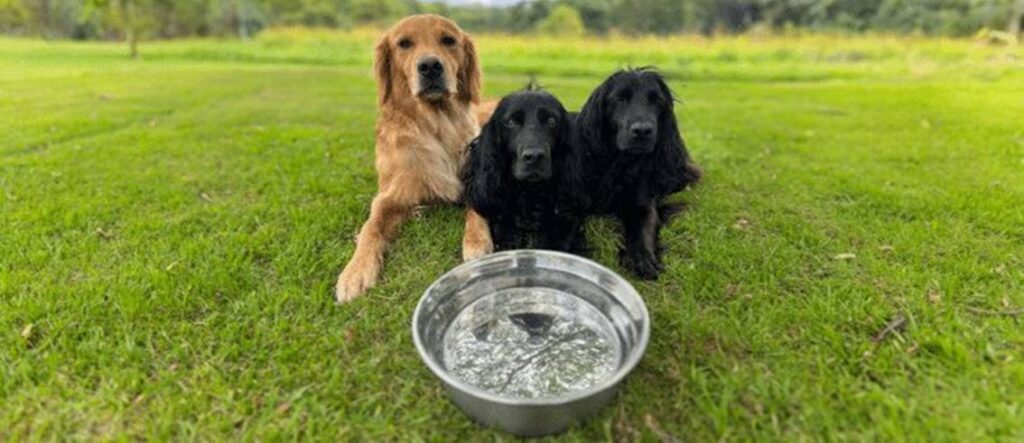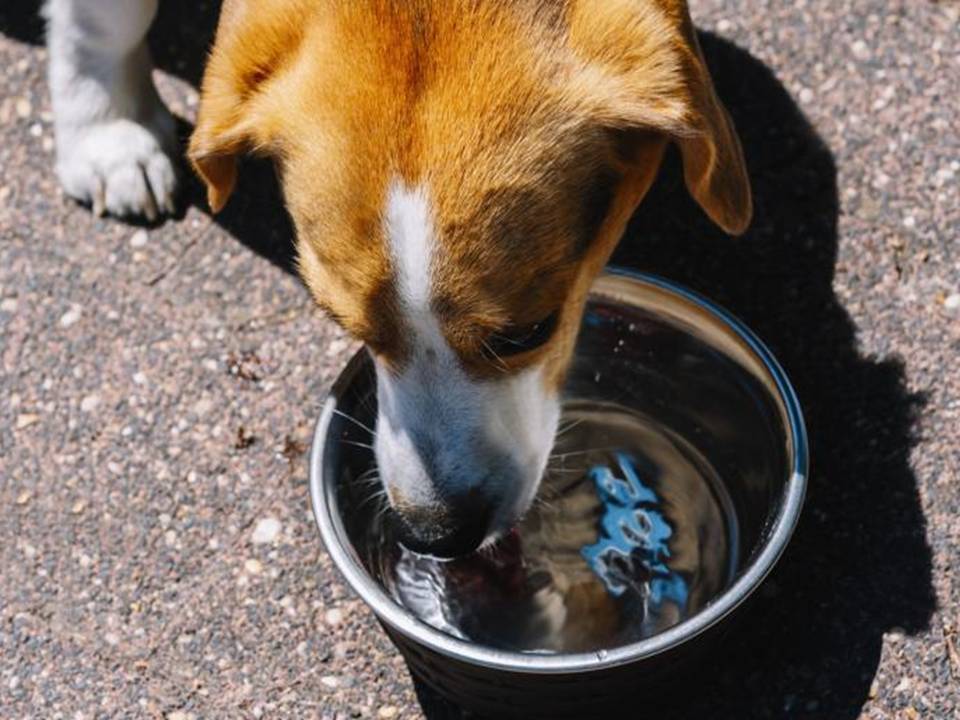Hydrate your Dog Even if He is not Thirsty
Hydration is critical for all living beings, and dogs are no exception. Water plays an essential role in maintaining a dog’s overall health, supporting key physiological processes such as digestion, circulation, temperature regulation, and waste elimination. Despite its importance, hydration in dogs is often overlooked until a problem arises. Ensuring that dogs consume adequate water daily is fundamental to their well-being, and pet owners should be aware of the signs of dehydration, the factors influencing water needs, and the best strategies to encourage healthy hydration habits.
The Role of Water in a Dog’s Body
Water makes up around 60-70% of a dog’s body weight and is involved in almost every bodily function. From cellular metabolism to nutrient absorption, water is vital for maintaining normal physiological processes. Specifically, water:
Aids digestion: It helps break down food so nutrients can be absorbed in the intestines.
Maintains circulation: Blood, which consists largely of water, carries oxygen and nutrients to the body’s cells.
Supports waste elimination: Water facilitates the removal of toxins and waste through urine and feces.
Regulates body temperature: Dogs cool off through panting, and water is essential in helping to dissipate heat from the body.
Lubricates joints: Water helps keep joints and tissues pliable, allowing dogs to move comfortably.
How Much Water Does a Dog Need?
The amount of water a dog needs varies depending on several factors, including size, age, activity level, and environmental conditions. As a general guideline, dogs should consume approximately one ounce of water per pound of body weight per day. For instance, a 40-pound dog should drink around 40 ounces (about 5 cups) of water daily. However, this is just a rough estimate, and individual water requirements can vary. Puppies, lactating females, and active or working dogs often need more water to stay properly hydrated.
Additionally, factors like diet can impact a dog’s water intake. Dogs eating primarily dry kibble may require more water than those consuming wet food, as the latter contains more moisture. Environmental factors, such as hot or humid weather, can also increase a dog’s water needs, as they will lose more water through panting.

Signs of Dehydration in Dogs
Dehydration can be dangerous, even life-threatening if left unchecked. Pet owners should be able to recognize the signs of dehydration and address it immediately. Common signs include:
Dry gums and nose: A hydrated dog will have moist gums, while a dehydrated dog may have dry, tacky gums.
Lethargy or weakness: Dehydrated dogs may lack energy and appear unusually tired.
Panting and rapid breathing: Excessive panting is a sign that the dog is attempting to cool down and may be dehydrated.
Loss of skin elasticity: One of the easiest ways to check for dehydration is the “skin tent test.” Gently pull up the skin on the back of your dog’s neck or between the shoulder blades. If the skin doesn’t snap back quickly, this could be a sign of dehydration.
Sunken eyes: Dehydrated dogs may have eyes that appear sunken or less alert than usual.
Dark, concentrated urine: This indicates the body is trying to conserve water by concentrating urine output.
If a dog exhibits any of these signs, it is crucial to offer water and, if the condition worsens, to seek veterinary attention immediately.
The Dangers of Dehydration
When a dog becomes dehydrated, it means that there is an imbalance in the body’s water and electrolyte levels, which can interfere with normal body functions. Even mild dehydration can lead to reduced organ function, and severe dehydration can result in shock, organ failure, or even death. Common causes of dehydration in dogs include excessive heat, prolonged physical activity, vomiting, diarrhea, or certain underlying medical conditions such as kidney disease.
Ensuring Adequate Water Consumption
Encouraging dogs to drink enough water is not always straightforward, especially if they are naturally less inclined to drink. Here are some practical tips to help ensure your dog stays hydrated:
Provide Fresh Water: Always ensure your dog has access to fresh, clean water. Change the water regularly, and clean their water bowl daily to prevent the build-up of bacteria.
Monitor Water Intake: Keep an eye on how much water your dog drinks each day, especially during hot weather or after exercise. If you notice a significant decrease in their water intake, consult your vet, as it could be a sign of an underlying health issue.
Flavour the Water: Some dogs are more inclined to drink if their water has a bit of flavour. Adding low-sodium chicken or beef broth can make the water more appealing without adding unnecessary calories or salt.
Use Multiple Water Stations: In larger homes or for dogs with mobility issues, placing water bowls in several locations can encourage more frequent drinking. This is especially important for older dogs that may be reluctant to move far from their resting area.
Wet or Moist Foods: Incorporating wet food into a dog’s diet or adding water to dry kibble can increase their overall water intake. Wet food generally contains around 70-80% moisture, making it a good option for dogs that do not drink enough.
Portable Water Solutions: For dogs that are active or travel frequently, portable water bowls or bottles ensure they can hydrate on the go. This is particularly important during long walks or outdoor activities.
Hydration Treats: Some treats are designed specifically to support hydration. Frozen treats, like ice cubes made from broth or water, can serve as refreshing and hydrating snacks, especially in hot weather.
Consult a Veterinarian: If your dog consistently drinks less water than expected, consult a veterinarian to rule out underlying health conditions, such as kidney problems or infections that might be affecting their water intake.
Conclusion
Hydration is essential for maintaining a dog’s health, influencing everything from digestion to temperature regulation. A dog’s water needs are influenced by factors such as age, activity level, diet, and the environment. Recognizing the signs of dehydration and taking proactive steps to encourage regular water consumption can help prevent dehydration-related health issues. By providing fresh water, offering hydrating treats, and monitoring water intake, pet owners can ensure their dogs stay hydrated and healthy for the long term.


